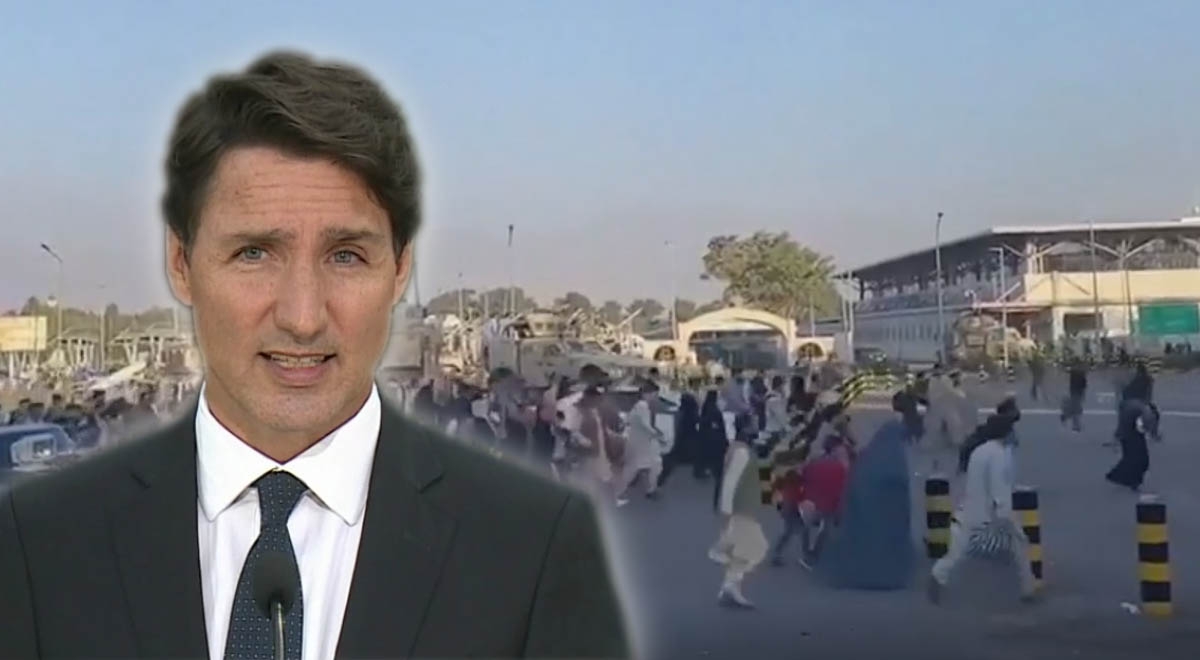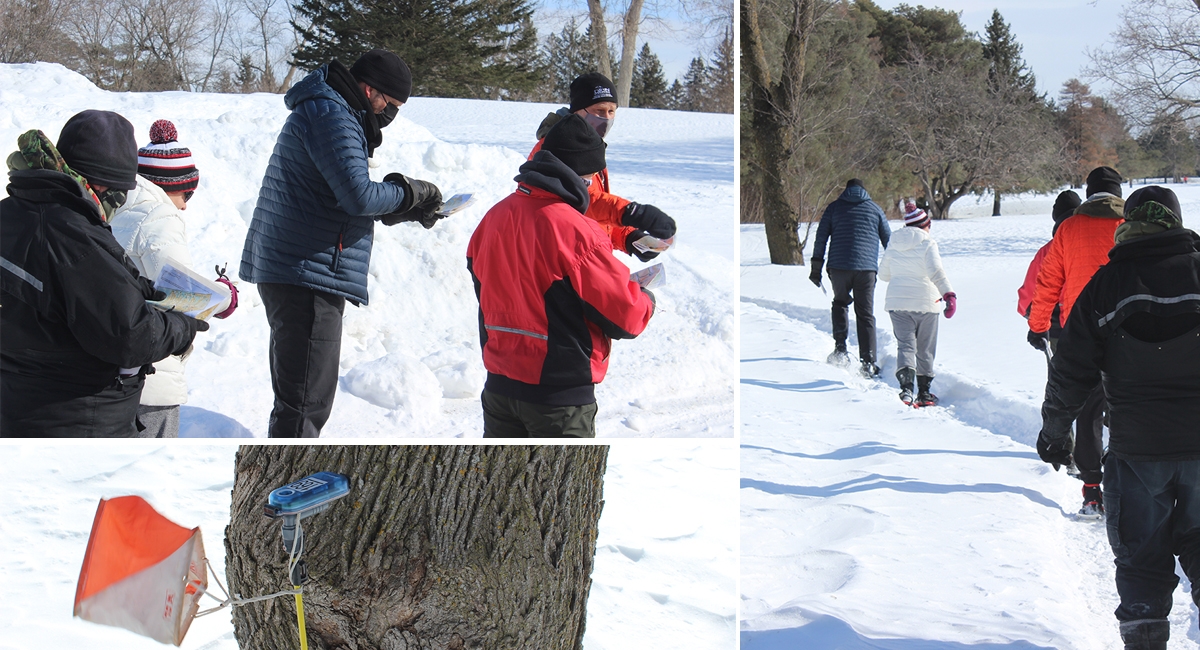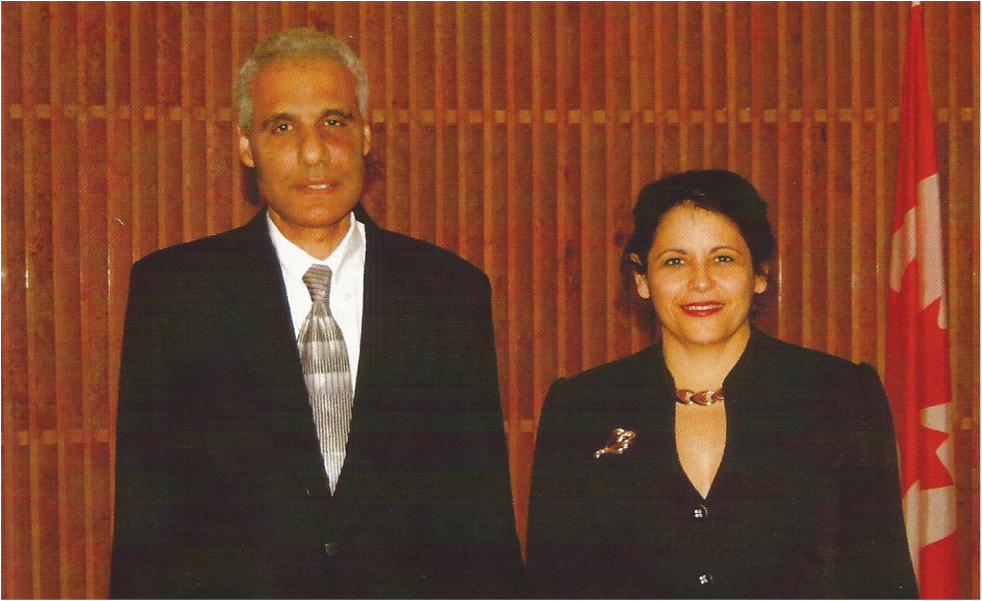
Canada’s Presence in Afghanistan
Why we are there and why we would do a disservice to the United Nations and ourselves if we didn’t see the mission through
The United Nations Assistance Mission in Afghanistan (UNAMA) is that august organization's single largest special political mission. Nineteen UN agencies are in Afghanistan to help the Afghan people and its democratically elected government establish a solid and secure democratic society. Twenty thousand troops from 37 countries (including over 2,500 Canadians soldiers) are involved in addition to diplomats and reconstruction and development experts. Canada has made the commitment to help Afghanistan both on a financial level and a humanitarian one. We are the third largest contributor after the United States and the United Kingdom – $1.2 billion will be dedicated to the reconstruction and development of Afghanistan until 2011.
Canada's first formal diplomatic relations with Afghanistan were established in 1968 but were severed following the Soviet invasion of that country in 1979. Diplomatic relations were not reestablished with any of the regimes that held power following the Soviet withdrawal in 1989 until the appointment in January 2002 of the Interim Administration of President Hamid Karzai. Canada reopened its embassy in Kabul in September 2003. Today, Canada works within the multilateral context, including at the UN General Assembly, the UN Commission on Human Rights and the UN Commission on the Status of Women, to ensure the human rights situation in Afghanistan gets due consideration and remains integral to the work of the international community. Canada's diplomats are working elsewhere in support of efforts in Afghanistan, including at NATO, through the G8, and at the Organization for Security and Cooperation in Europe. Through our embassies and high commissions, Canada is engaged with regional partners to promote cooperation on issues of security and economic development. Canada also works closely with the Afghan Embassy in Ottawa. More than 70 Foreign Affairs officers work on Afghan issues in Canada and abroad. In August 2006, there were 24 Canadian-based staff and 34 locally engaged staff working at the embassy in Kabul. The mission is dangerous for diplomats. In January 2006, 59-year-old Glyn Berry, a veteran Foreign Affairs official who was a "significant and key member" of Canada's mission to help stabilize and rebuild the shattered country, was killed by a Taliban bomb while on a Canadian military convoy. In addition to soldiers and diplomats, the Canadian International Development Agency (CIDA) has a substantial and growing headquarters team dedicated to Afghan development programming, as well as officers based in Kabul and Kandahar. Seventy-one Canadian soldiers have been killed to date in the Afghanistan mission.

The NATO military effort is to stabilize Afghanistan by defeating the Taliban extremists and create an atmosphere of stability to allow the broad-based reconstruction of the country. Most experts, including Canadian Forces Chief of the Defence Staff Rick Hillier, predict it will take up to 15 years to bring full security to the country through the auspices of an independent Afghanistan national army. In the meantime the UN and NATO will have to support the military and security aspects of the Afghan mission. A strong UN-supported civilian contribution is also at play in Afghanistan with educators, engineers, direct aid and technical personnel participating from many NATO countries. Canada [through CIDA] is engaged in work rebuilding schools and providing other social and economic assistance. Canada's total contribution commitment to assist the people of Afghanistan is nearly $1 billion over 10 years. Prime Minister Stephen Harper says that the military and reconstruction aspects of the mission "rebuilding a shattered society and providing a stable security environment" – go hand in glove. In a speech to the UN in September 2006, Harper said that the mission is making progress: "Of that there is no doubt – five million refugees repatriated; over five million children enrolled in primary schools; 10 million Afghans registered to vote in successive democratic elections."
Women now hold more than one-quarter of the seats in Afghanistan's Legislature – remarkable in a nation where a few short years ago girls could not attend school and women had no human rights of any kind. Harper went on to say that the success of this mission, in providing both security and development, is vital to the safety, livelihood and future of the Afghan people – but it is also vital to the health and future of Canada, the UN and NATO. In a line Harper would often repeat later, he said: "If we fail the Afghan people, we will be failing ourselves. For this is the United Nation's strongest mission and, therefore, our greatest test. Our collective will and credibility are being judged. We cannot afford to fail. We will succeed."
Contrast this with Jack Layton and the NDP and Gilles Duceppe of the Bloc Quebecois, who both continue to call for an immediate withdrawal of Canadian troops from Afghanistan. Layton strongly opposes the Canadian presence in Afghanistan, defining it as "a desire to please the Bush administration" and demanding time and again the withdrawal of Canada's troops from the Afghan territory. On the other hand, New Democrat MP Dawn Black, the party's defence critic, disagrees with Layton, stating in her Afghanistan diary: " … However, I still feel that this trip has given me an even greater understanding of our mission and reaffirmed my profound pride in the men and women in the Canadian Forces who are sacrificing so much. I believe more than ever, that when we ask them to put their lives on the line – it has to be for the right mission … " This is where the NDP have internal divisions. Their members support the UN and the UN supports (and in fact leads) the mission. For the NDP not to support the mission means they don't support the UN. However the NDP never wants to discuss the contradiction. It's better news headlines to say NATO troops accidentally killed Afghan citizens. Somehow Layton's mind conjures up the idea that this is all George W. Bush's doing.

Layton ignores the fact that it is a UN-sanctioned mission while putting out releases that say the Canadian and NATO troops are failing to win. "The growing civilian death toll in Afghanistan at the hands of NATO forces is more disturbing evidence that the counter-insurgency mission is not working. These deaths mark an escalation in the conflict." Layton is quick to repeat that: "We have lost more Canadians in this – our heaviest combat, since Korea," On another occasion, he said: "We support our troops and their families and it is out of the deep respect for each and everyone of them that we seek a de-escalation of this conflict." It is the penultimate suck-and-blow strategy – be against the mission, but not the soldiers. Problem is that it is hypocrisy of the highest (or lowest) order. Layton will boldly proclaim things like "We learned with great sadness from Afghan officials, that 45 civilians were killed this weekend by a NATO air strike," leaving the impression that the deaths were somehow avoidable or even worse, deliberate. Layton seems immune to the fact that there is a war going on over there and these tragic deaths are part of the overall tragedy that is Afghanistan. He doesn't respond to questions about what happens if NATO leaves. What about the women, the children and democracy? The NDP support the UN only when it suits them. His Foreign Affairs Critic and former NDP Leader Alexa McDonough recently demanded that Canada be involved in Darfur by supporting a UN Resolution on Darfur. "This UN resolution is a long-overdue opportunity for the international community to protect millions threatened by the severe humanitarian emergency in Darfur," McDonough said. "The Government of Canada must show its commitment to halting the devastating violence gripping the lives of Sudanese civilians by supporting this vital mission." While McDonough is right to be concerned about Darfur, she is also right to say that we must support UN resolutions. Especially the Afghanistan mission that has cost Canada 73 lives to date. If Layton's logic were followed, Canada would send troops to Darfur (let's not get into the NDP's decades of voting against procurement support for the Canadian Forces), and if anyone got killed, they would immediately come home. Layton is fond of saying the mission in Afghanistan needs a different direction. Problem is he hasn't offered one.
Stephane Dion and the Liberal Party have no official position on Afghanistan other than wanting the mission to end sooner rather than later. Dion, like Layton and Duceppe, has not visited Afghanistan since being elected leader. Canada's military mission there began soon after the attacks on the USA on 9/11/01, when the Liberal government of Jean Chrétien supported a UN and NATO resolution to remove the Taliban government. In October 2001, the Canadian government deployed a special Canadian Forces elite unit (JTF-1) to provide light military support on the ground to destroy Al-Qaeda and the Taliban targets. A Canadian naval task force was deployed to the Persian Gulf at that time. The Chrétien government also announced its desire to participate in the battle against terrorism by sending Canadian forces to join the international initiative. The basis of that resolution was that the Afghan people are relying on the international community to help them rebuild their lives and their country after having suffered through decades of instability, oppression and insurgency. By supporting the rebuilding of institutions such as independent courts, police and an army, Canada and other UN members would be on the ground laying the foundation for Afghans to govern themselves and secure a better future.

By February 2002, a battle group from the Princess Patricia's Canadian Light Infantry was sent to Kandahar for six months to assist the U.S. and other forces in Operation Enduring Freedom – an offensive against elements of the Taliban and al-Qaeda in the rugged southern regions. The Canadian deployment has had casualties and controversy from early on. In April 2002, an American jet dropped a bomb on a group of Canadian soldiers, causing a friendly fire accident that ended up killing four Canadian soldiers and injuring eight others. Two American pilots were eventually charged and court-martialled over the incident. From August 2003 to December 2005, Canada's military commitment was largely Operation Athena, based in the capital city of Kabul, as part of the International Security Assistance Force (ISAF), which had the aim of providing intelligence and security to allow "rebuilding the democratic process." (In 2003, Prime Minister Jean Chrétien refused to support George W. Bush's request to deploy between 1,500 and 2,000 Canadian troops to support his war on Iraq but did agree to boost the number of Canadian troops in Afghanistan, thus freeing up American forces to go to Iraq). In 2004, Canada provided a $250-million donation to the government of Afghanistan, of which $5 million was allocated to the 2004 Afghan elections, which resulted in Karzai being elected President with 55.4% of the total votes. In 2005, Liberal Prime Minister Paul Martin announced that the number of Canadian troops in Kabul would double from 600 to 1,200 as Canadian Forces continued to help repair and rebuild Kabul while providing security against the Taliban extremists. On July 31, 2006, NATO troops assumed command of all military operations in southern Afghanistan. The NATO-led ISAF already had troops elsewhere in Afghanistan, including the capital city of Kabul, and in the north and west of the country. NATO then deployed 8,000 soldiers – including 2,200 Canadians – and Afghan units to six southern provinces by mid-September 2006. Canadian Forces moved out of Kabul and into the reckless Kandahar province to bring stability to that region. The Kandahar Provincial Reconstruction Team represents this presence. It is constituted of members of the military, police force elements, diplomats and development experts. This team aims to improve the central government's authority, securing a safe environment and attaining peace in one of the most agitated provinces of the country. The Canadian mission also supports the Strategic Advisory Team (SAT), which dedicates its efforts to helping Afghan leaders improve their skills on the military, strategic and economic fronts. The SAT collaborates with the local Canadian embassy, the Department of National Defence and CIDA to support the Afghan government and provide strategic direction. Besides providing security in Kandahar, Canada is also committed to police reform – a global approach that includes mentoring, training, financing salaries, building police stations and supplying equipment and uniforms for the Afghan National Police; army training: Canadian soldiers work shoulder-to-shoulder with those of the Afghan National Army (ANA), helping them become a self-sufficient force, just as our mentoring teams work with ANA leadership to extend the influence of the central government throughout the country; and de-mining: minefield survey and clearance, stockpile destruction, mine risk education, victim assistance and capacity building. Canada has also contributed significantly to Afghan justice reform, strengthening Afghans' capacity to establish the rule of law, increasing access to justice and protecting and promoting human rights.
Afghanistan continues to be the largest recipient of Canadian development assistance. Canada's pledge of $1.2 billion until 2011 for development and reconstruction puts us among the top five donors in Afghanistan. Canada's support is for programs that ensure local ownership, accountability and community-based engagement, as well as those that rebuild necessary infrastructure. This approach is designed to re-equip Afghanistan with the tools and expertise it will need to sustain itself and flourish for generations to come. Canadians have made significant progress to date in access to education, particularly for women and girls, helping to establish thousands of community-based schools and supporting literacy and vocational training programs; economic development (Canada is the lead donor toward microfinance, which allows Afghans to start their own businesses and achieve self-sufficiency); community development and infrastructure: Canadians work with the Government of Afghanistan to improve the management of rural and national development programs, including the government-led National Solidarity Program, which encourages community development with projects in such areas as transport, irrigation, electricity, education, rural development and agriculture; and health (Canadians are helping Afghan health care workers to eradicate polio while improving obstetric care and maternal health.)
NDP Leader Jack Layton strongly opposes the Canadian presence in Afghanistan and has demanded time and again the withdrawal of Canada's troops from that wartorn country.
Former NDP Leader Alexa McDonough demanded that Canada be involved in Darfur by supporting a UN Resolution on Darfur. While McDonough is right to be concerned about Darfur, she is also right to say that we must support UN resolutions – but not for Afghanistan?
Liberal Leader Stéphane Dion has no official position on Afghanistan other than wanting the mkission to end sooner rather than later.
Buzzwords
Heavy weapons cantonment: Canada has committed to help Afghanistan collect and decommission weapons left over after years of combat. The estimated number of weapons to be decommissioned is 10,000.
De-mining: Canada has helped clear close to 15 million mines on Afghan territory. Canadian forces have also dedicated their efforts to raising mine risk awareness, and supported landmine victims.
Training: The Canadian government mobilized training forces to form and educate Afghan soldiers and police force members. The goal of this training is to help Afghan forces with the basics in order for them to ensure social cohesion and political stability.
Micro-loans: Among Canada's efforts in Afghanistan, another development project has been launched. Micro-loans were provided to Afghan citizens to ensure their economical well-being and to help them achieve self-sufficiency. Close to 89% of these micro-loan recipients are women.












